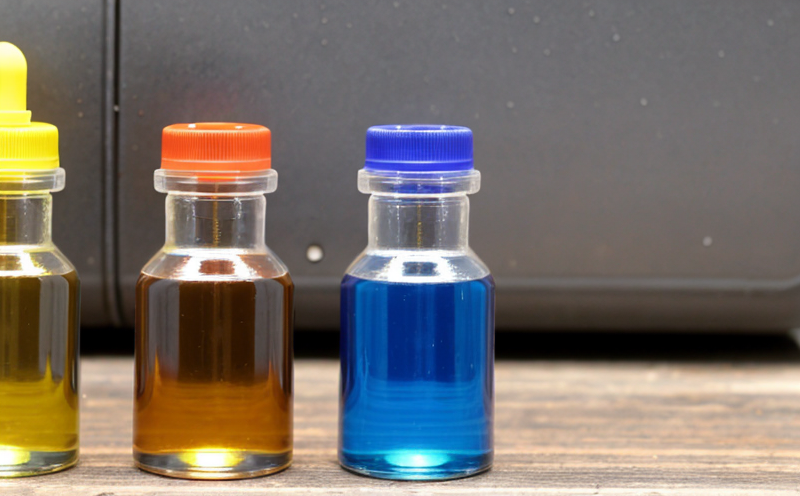Agricultural Soil pH Testing
Agricultural Soil pH Testing is a critical service that ensures optimal growing conditions for crops by measuring and controlling soil acidity or alkalinity. The pH level of the soil directly impacts nutrient availability, plant growth, and overall productivity. This testing is essential in agriculture as it helps farmers understand how to manage their soil chemistry effectively.
The process typically involves collecting soil samples from various points across a field and then sending them for laboratory analysis. Soil pH can vary significantly depending on climatic conditions, geographic location, and the type of plants being cultivated. For instance, some crops thrive in slightly acidic soils (around 6.0-6.8), while others prefer more alkaline environments.
Accurate soil pH testing is crucial for several reasons:
- Optimizing Nutrient Availability: Different nutrients become available at different pH levels. For example, phosphorus becomes less soluble in acidic soils, which can lead to deficiencies if not managed properly.
- Promoting Healthy Crop Growth: Incorrect soil pH can stunt plant growth and reduce yield. By maintaining the optimal pH range for each crop type, farmers can enhance plant health and productivity.
- Improving Soil Structure: Soil pH influences the structure of the soil, affecting aeration, water retention, and root development. Properly managed soil pH ensures that these factors are optimized for maximum growth potential.
- Enhancing Crop Quality: The quality of produce can be significantly affected by soil pH. Maintaining the correct balance helps in achieving higher-quality crops with better flavor and texture.
The testing process involves several steps, including sample collection, preparation, analysis using pH meters or titration methods, and interpretation of results. Compliance with international standards such as ISO 17259:2016 for soil sampling ensures that the data collected is reliable and accurate.
Our laboratory uses advanced instrumentation to provide precise measurements and detailed reports tailored to each client's needs. Our expertise lies in ensuring that your crops have the best possible growing conditions, which ultimately translates into improved yields and higher-quality produce.
Why It Matters
The importance of Agricultural Soil pH Testing cannot be overstated. In a world where food security is becoming increasingly critical due to population growth and climate change, understanding soil chemistry is paramount for sustainable agricultural practices.
Precision in Agriculture: With the advent of precision agriculture, farmers are turning towards more data-driven decisions. Soil pH testing plays a crucial role in this shift by providing actionable insights that can be used to fine-tune farming practices.
Sustainability and Environmental Impact: Proper soil pH management reduces the need for excessive use of chemical fertilizers and pesticides, which have negative environmental impacts. By optimizing nutrient availability through precise pH control, farmers can reduce their carbon footprint and contribute positively to the environment.
Economic Benefits: Efficient farming practices lead to higher yields and better-quality produce, translating into increased profits for farmers. Additionally, by avoiding unnecessary inputs like over-fertilization, costs are minimized without compromising on yield or quality.
The global demand for food is expected to rise significantly in the coming decades. Ensuring that every gram of soil is used efficiently will be key to meeting this demand while also addressing environmental concerns. Soil pH testing is an integral part of this strategy.
Benefits
- Improved Crop Yield: Maintaining optimal pH levels ensures that crops receive the necessary nutrients, leading to higher yields and better quality produce.
- Precise Nutrient Management: Accurate soil pH testing allows for precise application of fertilizers, reducing waste and cost while maximizing efficiency.
- Enhanced Plant Health: Correct pH levels promote healthy root systems and overall plant health, leading to stronger and more resilient crops.
- Cost Savings: By optimizing soil chemistry, farmers can reduce unnecessary inputs like over-fertilization and pesticides, resulting in lower production costs.
- Sustainable Farming Practices: Proper pH management contributes to sustainable farming by reducing environmental impact and promoting long-term soil health.
The benefits of accurate soil pH testing extend beyond individual farms. They contribute to the broader goal of sustainable agriculture, ensuring that food is produced efficiently and responsibly for future generations.
International Acceptance and Recognition
Agricultural Soil pH Testing is widely recognized and accepted across the globe due to its critical role in agricultural sustainability. International standards such as ISO 17259:2016 provide a framework for consistent soil sampling, which ensures that the data collected from different regions or countries can be compared accurately.
Many global organizations, including the Food and Agriculture Organization (FAO) of the United Nations, emphasize the importance of accurate soil pH testing in achieving sustainable agricultural practices. Compliance with these standards not only enhances credibility but also helps farmers meet international quality and safety requirements.
The acceptance of this service is further bolstered by its widespread use in research institutions and academic settings. Universities and research centers around the world rely on accurate soil pH data to develop new crop varieties and farming techniques that are both efficient and environmentally friendly.





